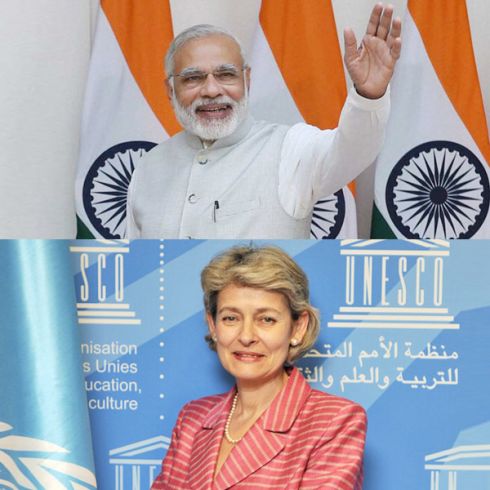
NEW DELHI: Prime Minister Narendra Modi, who has extracted maximum advantage of radio during his tenure through his monthly 'Mann Ki Baat' on All India Radio, today said: "Radio is a wonderful way to interact, learn and communicate."
In his greetings on World Radio Day to all the radio lovers and to those working in the radio industry, he said: "Greetings on World Radio Day. I congratulate all radio lovers and those who work in the radio industry and keep the medium active and vibrant."
He added: "My own Mann Ki Baat experience has connected me with people across India" and said all 'Mann Ki Baat' episodes can be heard at narendramodi.in/mann-ki-baat ”.
In her message on the occasion, UNESCO Director-General Irina Bokova called on everyone to nurture the power of radio to foster the conversations and the listening we need for cooperation to tackle the challenges all humanity faces.
But she said this requires a new commitment by all to radio. Broadcasters, regulators and audiences alike should nurture and make the most of its power.
“We are living a revolution in how we share and access information – and, yet, in the midst of deep change, radio has never been so dynamic, engaging and important. At a time of turbulence, radio provides an enduring platform to bring communities together. On the way to work, in our homes, offices and fields, in times of peace, conflict and emergencies, radio remains a crucial source of information and knowledge, spanning generations and cultures, inspiring us with the wealth of humanity’s diversity, and connecting us with the world”, she said.
“Radio gives voice to women and men everywhere. It listens to audiences and responds to needs. It is a force for human rights and dignity and a powerful enabler of solutions to the challenges all societies face. This is why radio is important to taking forward the 2030 Agenda for Sustainable Development,” she added.
“Advancing fundamental freedoms and promoting public access to information is essential to bolstering good governance and the rule of law, to deepening inclusion and dialogue. In tackling new challenges, in responding to climate change, in countering discrimination, radio can provide an accessible and Real -time medium to bridge divides and strengthen dialogue.”
She added: “Listener clubs and forums are uniting communities around common issues with the power to hear themselves on the airwaves and to have others listen to them. Audience engagement policies are placing listeners at the heart of broadcasts. Media and information literacy has never been so vital, to build trust in information and knowledge at a time when notions of ‘truth’ have been challenged.”
“This is how radio can provide a beacon for innovative solutions to local problems, and continue to advance human rights, gender equality, dialogue and peace,” she concluded.